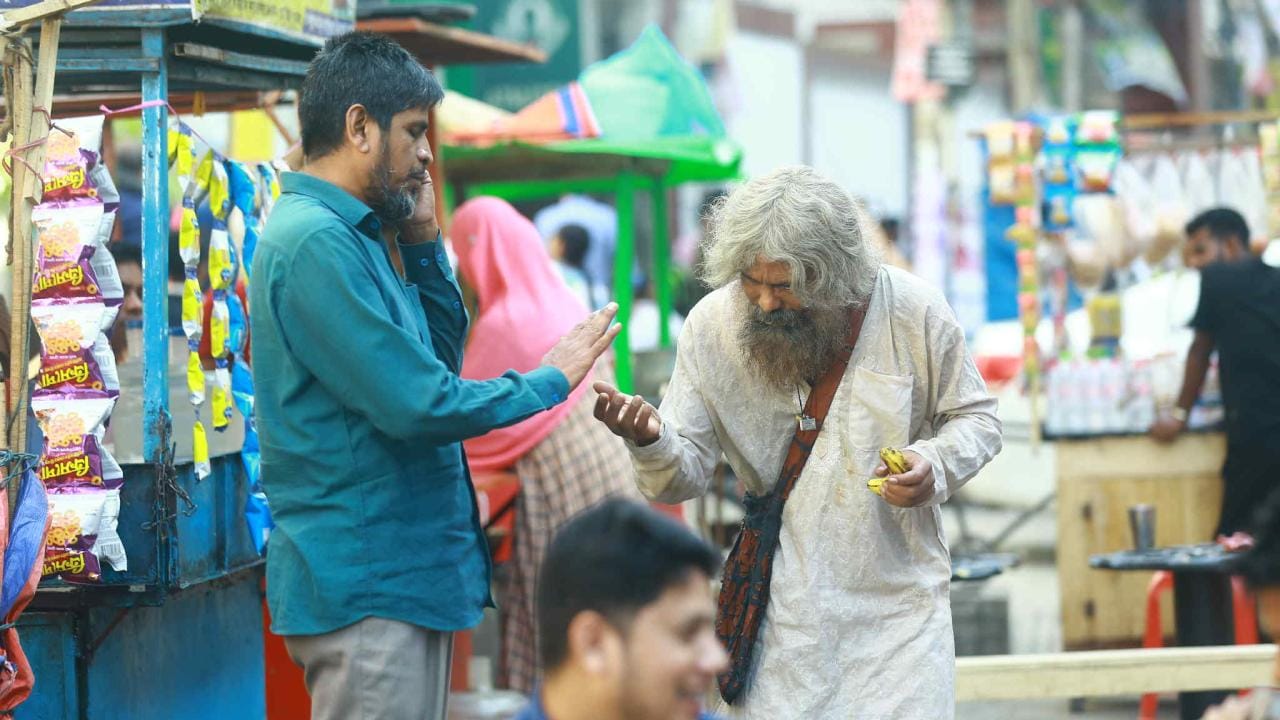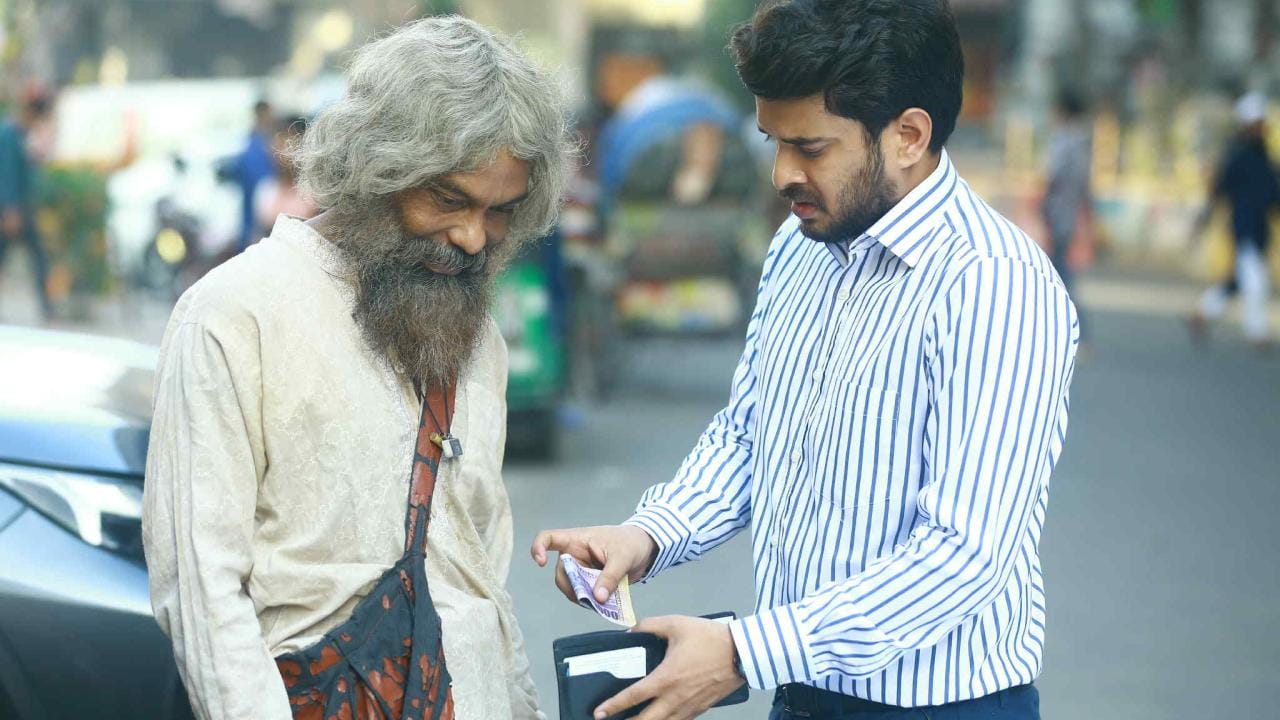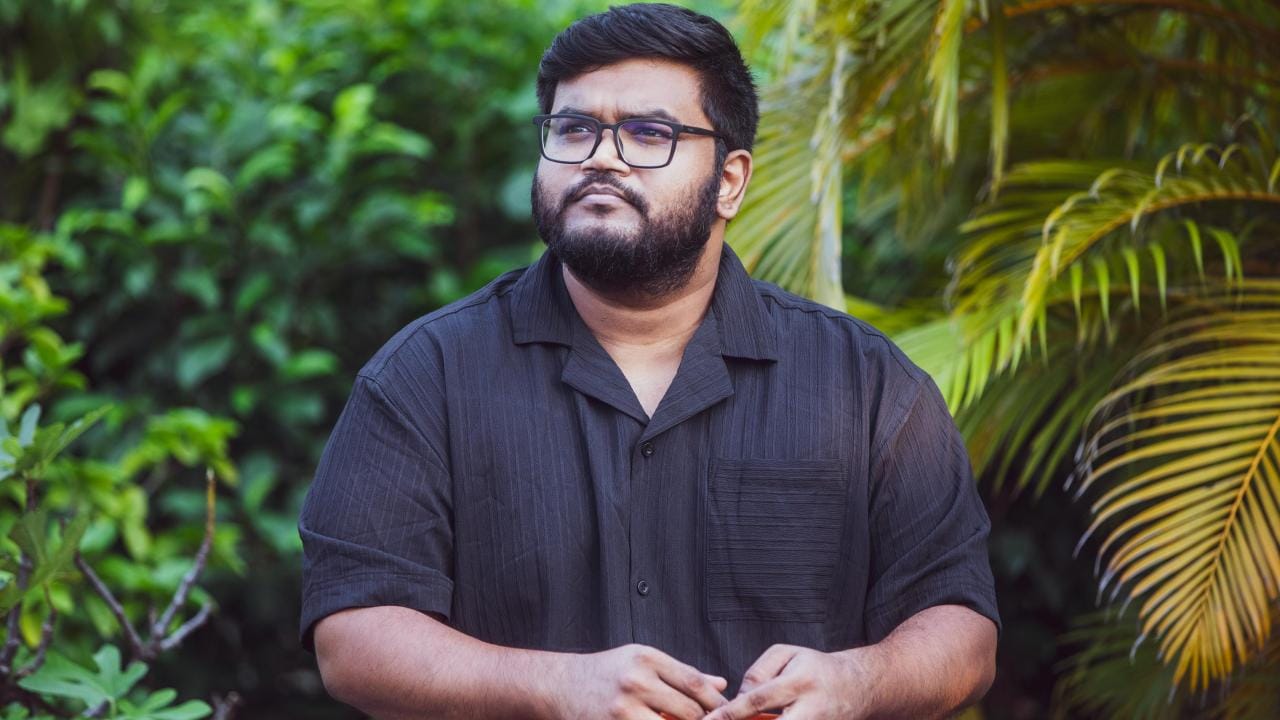Anonno Proteek Chowdhuri talks ‘Noya Note’, rising career

"I spent most of my life studying and playing football," Anonno Proteek Chowdhuri says with a small shrug. He trained as a chartered accountant and worked in the field long enough to know the claustrophobia it carried. "I kept telling myself that if I ever reached a point of stability, I'd make a film one day."
However, years of quiet resolve caught up with him. He had seen his parents, directors Chayanika Chowdhury and Arun Chowdhury, leave their marks on the entertainment industry, and he was building up his repertoire to do the same. Written and directed by Anonno himself, the debut web film, "Noya Note", released on September 12, grew directly out of that decisive leap. The film opens with the striking line, "In this world, everyone begs—some for five taka, others for millions," setting the tone for a story that follows a homeless man, begging for money. Working on a tight budget, he sent lead actor Nasir Uddin Khan onto real streets in character, unannounced.

"The gamble even paid off. Strangers on the street took Nasir bhai for a homeless man, and he walked back counting Tk 330 in his palm," he recalls with a wry smile. "I didn't have the money to gather hundreds of extras. And if people didn't actually believe Nasir bhai was a beggar, the scene would never feel real." To the public, he was just another man seeking alms; the camera, pulled back to a wide frame, captured an unfiltered scene.

Anonno's apprenticeship began in 2019 on the set of "Mayaboti", where he worked as an assistant director. "It struck me early that a director juggles far more than what appears on the monitor, so I chose to shoulder the smaller tasks, so that the core team can keep their eyes fixed on the lens."
That sense of responsibility has never left him. On the set of "Jole Jwole Tara", he personally arranged restrooms for the cast and crew members. "As an AD, my crew's well-being is my duty on humanitarian grounds."
The work taught him flexibility as well. "On paper, we plan everything, but on location everything can change. We wanted sunlight, then it rained. You have to think fast and turn a bad situation to your favour."

In a conversation, when asked if he keeps international viewers in mind or focuses primarily on Bangladeshi audiences, he smiles and says, "Here, I'd like to refer to Nuhash bhai (Nuhash Humayun); he always reminds us that when he makes something, he simply makes it good. It isn't about whether the audience is local or global; if the work feels right, it reaches everyone."
To Anonno, the digital screen is the perfect balance between the global and local audience. "Our market is still in a flux," he explains. "Streaming creates avenues for stories that sit somewhere between a TV serial and a full-length feature film." He calls Bangladesh's modest scale a blessing in disguise. "Even with slim budgets, the craftsmanship can rival global productions."
He then speaks plainly about the uneven footing for newcomers. "If a seasoned director is handed a crore and a first-timer only a fraction of that, the results will never be measured on equal terms. I'm not asking for extravagance; just the chance to compete on level ground."

The young director plans to steer upcoming films toward the festival circuit once he finds producers willing to hold a finished film long enough for the circuit. "When someone puts up the money, I owe them a return. It's never a take-and-run deal," he says.
Anonno finally concedes his one concern. "Scale is my greatest challenge," he says. "To realise these stories as I imagine them, I need a bigger canvas, a stage expansive enough to hold their full weight. If I can get there, I know I'll shine."




 For all latest news, follow The Daily Star's Google News channel.
For all latest news, follow The Daily Star's Google News channel.
Comments